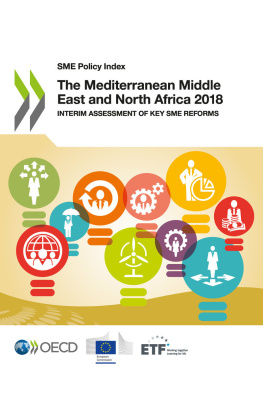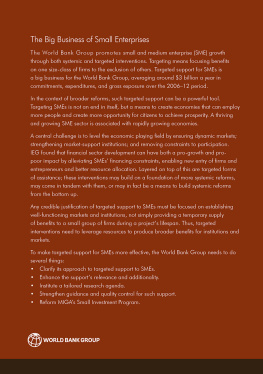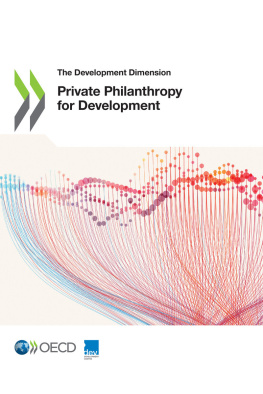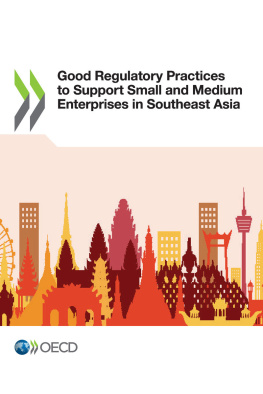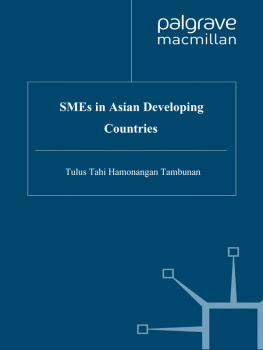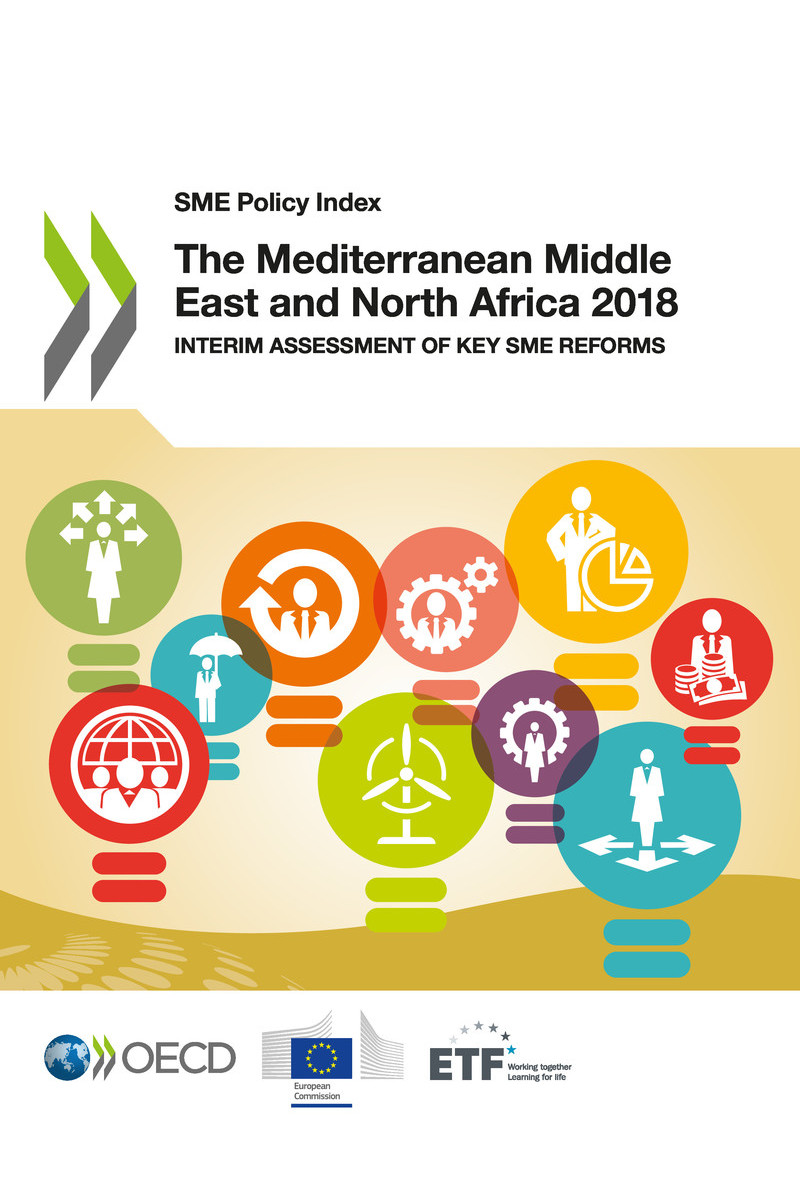SME Policy Index
The Mediterranean Middle East and North Africa 2018 Interim Assessment of Key SME Reforms
Please cite this publication as:
OECD/EU/ETF (2018), The Mediterranean Middle East and North Africa 2018: Interim Assessment of Key SME Reforms , SME Policy Index, OECD Publishing, Paris.
https://doi.org/10.1787/9789264304161-en
Metadata, Legal and Rights
ISBN: 978-92-64-30415-4 (print) - 978-92-64-30416-1 (pdf) - 978-92-64-30665-3 (HTML) - 978-92-64-30664-6 (epub)
DOI: https://doi.org/10.1787/9789264304161-en
Series: SME Policy Index
ISSN: 2413-6875 (print) - 2413-6883 (online)
European Union: Catalogue number
EZ-01-18-716-EN-C (Print)
EZ-01-18-716-EN-N (PDF)
ISBN 978-92-79-89117-5 (Print)
ISBN 978-92-79-89114-4 (PDF)
This work is published under the responsibility of the Secretary-General of the OECD. The opinions expressed and arguments employed herein do not necessarily reflect the official views of the OECD member countries, the European Commission or the European Training Foundation.
This document, as well as any data and any map included herein, are without prejudice to the status of or sovereignty over any territory, to the delimitation of international frontiers and boundaries and to the name of any territory, city or area.
The statistical data for Israel are supplied by and under the responsibility of the relevant Israeli authorities. The use of such data by the OECD is without prejudice to the status of the Golan Heights, East Jerusalem and Israeli settlements in the West Bank under the terms of international law.
Photo credits: Cover Andrew Esson/Baseline Arts Ltd.
Corrigenda to OECD publications may be found on line at: www.oecd.org/publishing/corrigenda .
OECD/European Union/European Training Foundation, 2018
You can copy, download or print OECD content for your own use, and you can include excerpts from OECD publications, databases and multimedia products in your own documents, presentations, blogs, websites and teaching materials, provided that suitable acknowledgement of OECD as source and copyright owner is given. All requests for public or commercial use and translation rights should be submitted to .
Foreword
During the past decades, countries in the Middle East and North Africa have introduced a number of measures and reforms to promote the development of the private sector as a driver of jobs and development. Those reforms have varied in depth and form and have included opening up to trade and investment; improving the regulatory environment for businesses; promoting the development of financial markets; and the enactment of enterprise development policies. MENA countries have also implemented policies to promote the development of entrepreneurship and small businesses in recognition of the significant role those actors can play in the economy.
This report constitutes an interim assessment of the main policy reforms for micro, small and medium-sized enterprises (SMEs) undertaken by Algeria, Egypt, Israel, Jordan, Lebanon, Morocco, the Palestinian Authority (PA) and Tunisia (the MED economies or the MED region), since the publication of the SME Policy Index for the Mediterranean Middle East and North Africa 2014: Implementation of the Small Business Act for Europe .
The objective of the report is to inform governments, private sector organisations, social partners, civic interest groups, donors and other stakeholders of the progress in the implementation of the key actions of, and the level of convergence with, the Small Business Act for Europe (SBA). It also aims to sustain the process of regional dialogue among MED economies and the co-operation between the region, the European Union (EU) and the Organisation for Economic Co-operation and Development (OECD).
For the OECD, PA is an abbreviation of Palestinian Authority and defines either the territories in the West Bank and Gaza under the administration of the Palestinian Authority, or the Palestinian Authority itself, according to the context. For the European Commission and the EU institutions contributing to the report, PA stands for Palestine and its institutions. This designation shall not be construed as recognition of a State of Palestine and is without prejudice to the individual positions of the EU Member States on this issue.
Acknowledgements
This project was funded by the European Commission and supported by the network of Experts on Industrial Co-operation of the Union for the Mediterranean. The project was undertaken in the context of the MENA-OECD Competitiveness Programme, which is supported financially by the Swedish International Development Co-operation Agency (SIDA).
The assessment leading to this report was based on a collaborative and consultative process involving MED governments and public institutions, private sector organisations and civil society. Each of the participating MED economies contributed to the collection of data and information on SME policies under the supervision of a national co-ordinator. The Delegations of the European Union in each MED economy also provided important information.
National co-ordinators were: Abdellah Telailia (Ministry of Industrial Development and Investment Promotion, Algeria); Amr Taha (Industrial Modernisation Centre, Egypt); Nir Ben-Aharon (Ministry of Economy, Israel); Mira Hussein (Jordan Enterprise Development Corporation); Manal Yassine (Ministry of Industry, Lebanon); Abderraouf Aissaoui (Morocco SME, Morocco); Manal Farhan Ibrahim/Shkoukani and Haytham Wahidi (Palestinian Ministry of National Economy and Palestinian Investment Promotion Agency); and Mr Wajdi Neffati (Agency of Industrial Promotion and Innovation, Tunisia).
Useful comments were provided by the EU Delegations in Algeria, Egypt, Israel, Jordan, Lebanon, Morocco, PA and Tunisia. The report was also peer reviewed by Ludovica Agr (Italian Agency for Territorial Development) and Sadok Bejja (Tunisian Ministry of Industry) in their role as co-chairs of the MENA-OECD Working Group on SME and Entrepreneurship Policy, under the MENA-OECD Competitiveness Programme.
This report was prepared by the Middle East and Africa (MEA) Division of the OECD Global Relations Secretariat and the European Training Foundation (ETF). The OECD team involved in preparing the report included Jorge Galvez Mendez, Pilar Snchez-Bella, Roger Fores Carrion, Elise Jelsma, Chema Triki and Lucie Kirstein, under the supervision of Carlos Conde, Head of the MEA Division. The ETF team preparing the sections on human capital development included Mariavittoria Garlappi, Anthony Gribben, Olena Bekh, Kristien Van den Eynde and Alice Zanasi. Bill Tompson and Antonio Fanelli from the Global Relations Secretariat provided important comments on the report. Miriam Allam, Kenza Kachani and other colleagues at the Public Governance Directorate of the OECD also provided useful comments.
Scope of the report
This interim assessment is not a full update of the 2014 SME Policy Index, which includes ten policy areas and more than 100 policy indicators (see Box 1). Rather, it consists of an overview of the progress made by MED economies with respect to the implementation of key reforms identified in 2014.
The report covers five policy domains: 1) the foundations of SME policy definitions, statistics and institutions; 2) improving business environments for SMEs and entrepreneurs; 3) fostering access to finance; 4) nurturing start-ups and SME growth; and 5) entrepreneurial human capital development. The following sections briefly describe the rationale and the specific policy aspects analysed in this report.

